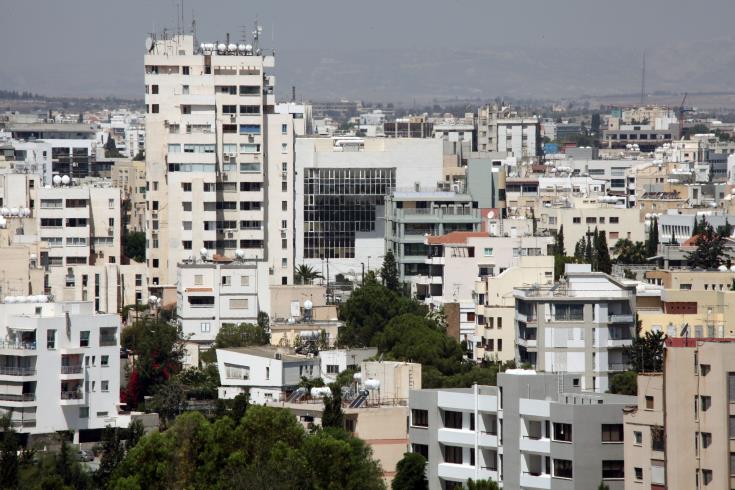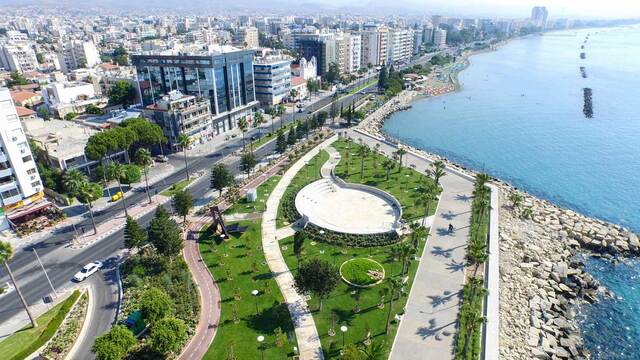Almost 10,000 highly skilled and highly paid Ukrainian refugees have joined the island’s work force, paving the way for a number of socioeconomic and demographic changes to the structure of Cypriot society.
In just over a year since Russia’s invasion of Ukraine, 9,000 highly skilled Ukrainians were granted a working permit, employed by high tech companies setting up shop in Cyprus, according to Invest Cyprus, the national agency to attract foreign investment.
Invest Cyprus’ newly appointed CEO, Marios Tannousis, said that in 2022, when including family members, the total number of Ukrainians obtaining a residence permit through the Business Facilitation Unit under the Commerce Ministry reached 24,000.
In comments to news site Philenews, Tannousis noted that the number of highly skilled employees making their way to Cyprus is further inflated by Belarussians and Russians fleeing from the fallout of the war.
“A significant number of employees have also made their way to the island from Israel and from Lebanon, which is torn by a deep political and economical crisis. The majority of these people have been employed by high-tech companies already on the island,” said Tannousis.
Invest Cyprus’ head also noted that a large number of companies have also decided to relocate to the island as a result of the war in Ukraine and turbulence in the region.
Tannousis pointed out that in 2022, according to the BFU, a one-stop mechanism set up in 2020 to reduce red tape procedures for businesses, a total of 1,640 submitted a request to set up shop on the island.
He noted that the national strategy introduced in January 2022 to encourage headquartering of large firms is the main drive behind the arrival of thousands of highly qualified professionals.
In comments to the Financial Mirror, PwC Cyprus Partner Constantinos Savvides said the real estate market’s growth last year was down to an influx of foreign high-tech employees relocating to Cyprus, and Ukrainian refugees.
According to PwC’s in-depth analysis, the total value of Cyprus’ real estate transactions reached a record-high of €5.2 bln in 2022, recording an annual increase of 27%.
Fast tracking
Latest legislation has seen Cyprus offer incentives to companies to relocate to the island, including the fast tracking of residence permit for employees, and tax incentives for both companies and their employees.
For existing employees, the latest legislation introduced provides for a 50% tax break on remuneration from employment earnings of €55,000 p.a. by an individual already in Cyprus, provided that before their employment, they were abroad for 12 consecutive years.
The law also provides a grace period of six months for obtaining the benefit, while the exemption will continue to apply for 17 years from the commencement of employment.
For new employees, the bill provides a 50% tax deduction on remuneration exercised in Cyprus by an individual abroad for 12 consecutive years, while eligible persons should earn €55,000 p.a.
Companies moving to Cyprus must make a documented investment of a minimum €200,000 in the island’s economy, before being eligible for registration.
Meanwhile, economists warn that although the arrival of highly skilled and highly paid employees will be injecting serious amounts into the island’s economy, the state will need to rethink its development and housing models.
Side effects
Economist Dr Sofronis Clerides told Philenews that the state will need to address a series of side effects, including the abrupt increase of rents and the value of houses, as the newcomers make their way into the property market.
Clerides, the head of the School of Economics and Management at the University of Cyprus, stated that the arrival of qualified professionals generally has had a positive impact on the economy, as the demand for services has increased.
“This has had a positive impact on the operation of related businesses increases, such as foreign language schools, while money is also injected in the rest of the Cypriot market, such as in the catering sector,” said Clerides.
The economist said, however, that the state will need to introduce a safety net, in order to protect the scheme from “similar mistakes made in the case of the Citizenship for Investment scheme”.
Clerides noted that the arrival of thousands of highly paid employees has already pushed up rents and had a negative impact on the cost of living of locals, especially in Limassol, where the majority of foreign companies have relocated to.
He argued that the national strategy to attract business is undoubtedly a more positive economic policy than the ‘golden passports’ scheme, however it should be accompanied by a housing policy from the state.
Clerides emphasised that the intervention of the state is necessary to deal with the negative effects, as “leaving the market unchecked, will only allow it to work in the interest of those with high income”.
According to data from Ask Wire Index for property sale and rental values, the rental values in Q1 2023, compared to Q1 2022, increased 19% for apartments and 12.2% for houses across the island.










